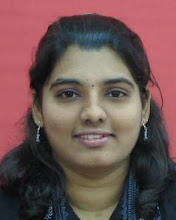INFORMATION TECHNOLOGY MANAGEMENT
IT Management is the discipline whereby all of the technology resources of the firm are managed in accord with the company’s needs and priorities. Those resources include tangible investments like computer hardware, software, data, networks and data centre facilities, as well as the staffs who are hired to maintain them. Managing this responsibility within a company entails many of the basic management functions, like budgeting, staffing, organizing and controlling, plus aspects that are unique to technology, like change management, software design, network planning, tech support and others.
IT Management is a different subject from Management Information Systems. Management Information Systems refer to information management methods tied to the automation or support of human decision making. IT Management, as stated in the above definition, refers to the IT related management activities in organizations. MIS as it is referred to is focused mainly on the business aspect with a strong input into the technology phase of the business/organization.
A primary focus of IT Management is the value creation made possible by technology. This requires the alignment of technology and business strategies. While the value creation for an organization is a network of relationships between internal and external environments, technology plays an important role in improving the overall value chain of an organization. However, this increase requires business and technology management to work as a creative, synergistic, and collaborative team instead of a purely mechanistic span of control.
IT Infrastructure
The term IT Infrastructure is defined in ITIL v3 as combined set of hardware, software, networks, facilities, etc. (including all of the Information Technology), in order to develop, test, deliver, monitor, control or support IT services. Associated people, Processes and documentation are not part of IT Infrastructure.
List of IT Management disciplines
The below concepts are commonly listed or investigated under the broad term IT Management:
- Business/IT alignment
- IT Governance
- IT Financial Management
- IT Service Management
- Sourcing
- IT configuration management
IT Managers
IT Managers have a lot in common with Project Managers but their main difference is one of focus: IT Managers are responsible and accountable for an ongoing program of IT services while the Project Managers' responsibility and accountability are both limited to a project with a clear start and end date.
Most of the IT management programs are designed to educate and develop managers who can effectively manage the planning, design, selection, implementation, use, and administration of emerging and converging information and communications technologies. The program curriculum provides students with the technical knowledge and management knowledge and skills needed to effectively integrate people, information and communication technologies, and business processes in support of organizational strategic goals.
Graduates should be able
- to explain the important terminology, facts, concepts, principles, analytic techniques, and theories used in IT management.
- to apply important terminology, facts, concepts, principles, analytic techniques, and theories in IT management when analyzing complex factual situations.
- to integrate (or synthesize) important facts, concepts, principles, and theories in IT management when developing solutions to IT management multifaceted problems in complex situations.













